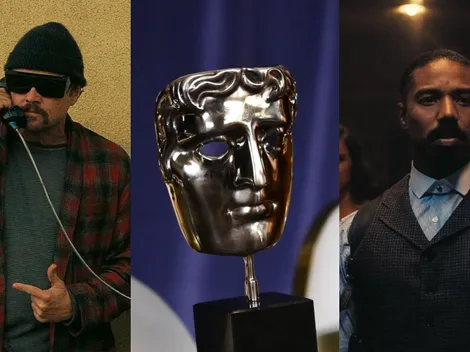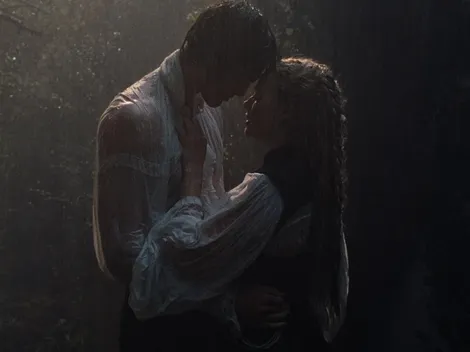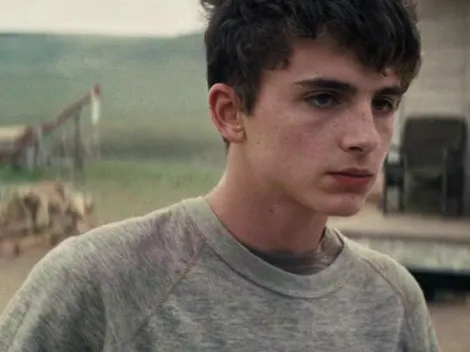Horror franchises are notoriously hard to keep fresh. What begins as a chilling masterpiece often turns into a mess of recycled scares and lazy sequels. But every so often, a series defies the odds and stays sharp from beginning to end. These ten horror franchises never lost their edge, proving that great horror can keep evolving without losing what made it scary in the first place.
Final Destination

IMDb
Since its inception in 2000, Final Destination has explored the premise of escaping death only to face even more macabre fates. Each film features a meticulously choreographed chain of fatal events, where death is portrayed as an inevitable and creative force. The sequels kept the concept fresh by inventing increasingly elaborate and surprising scenarios, playing with audience expectations and reflecting on the fragility of life and the inevitability of death.
Halloween

IMDb
Michael Myers needs no explanation—he is pure evil. Since his silent stalking in John Carpenter’s original classic, this franchise has evolved over more than four decades, exploring different interpretations of the killer’s psyche. Unlike other villains, Myers is an unstoppable force stripped of clear motivations, making him even more terrifying.
The 2018 reboot, directed by David Gordon Green, brought the franchise back to its roots, ignoring previous sequels and focusing on the ultimate showdown between Laurie Strode (Jamie Lee Curtis) and the Boogeyman, proving that the terror of Halloween is timeless.
A Nightmare on Elm Street

IMDb
Introducing Freddy Krueger to the world in 1984, A Nightmare on Elm Street fused supernatural horror with reality by exploring the vulnerability of dreams. Created by Wes Craven, the franchise became known for its imaginative dream sequences and Freddy’s sardonic personality, portrayed by Robert Englund. The sequels expanded the character’s mythology and delved into human psychology, maintaining a blend of horror and dark humor that cemented Freddy as a horror icon.
Friday the 13th

IMDb
The Friday the 13th franchise is a cornerstone of slasher horror. Beginning in 1980, this iconic series introduced the world to Jason Voorhees, a relentless, nearly indestructible killer with a signature hockey mask. Set in the eerie Camp Crystal Lake, the films revolve around the gruesome murders of unsuspecting campers and counselors.
What makes Jason terrifying is his uncanny ability to return from death, making him a symbol of unrelenting evil. The franchise’s formula—creative kills, a haunting atmosphere, and a mysterious backstory—made Friday the 13th a staple of 80s horror. Despite numerous sequels, reboots, and even crossovers with A Nightmare on Elm Street, the essence of Jason’s terror remains timeless, forever tied to the infamous day of Friday the 13th.
The Purge

IMDb
With a chilling premise of an annual night where all crimes are legal, The Purge franchise has served as a platform to explore social and political themes. Each movie expanded the scope—from focusing on a single family in the first film to depicting chaos in the streets and broader sociopolitical implications in the sequels. The franchise has been praised for its ability to reflect and critique contemporary society, using horror as a medium to provoke thought and debate.
It

IMDb
Nothing is more terrifying than a creature that feeds on our deepest fears. Based on Stephen King’s novel, It has transcended as one of the most disturbing horror stories ever adapted. The clown Pennywise, a cosmic entity that preys on the children of Derry, embodies a primal fear of the unknown. The 2017 and 2019 film adaptations, directed by Andy Muschietti, blend visceral horror with an emotional story of friendship, making the Losers’ Club’s battle against Pennywise as resonant as the scares themselves.
Saw

IMDb
When horror intertwines with moral punishment, the result is a franchise that redefines suffering. Saw not only popularized the “torture p*rn” subgenre but also built an intricate mystery around its villain, Jigsaw, who doesn’t kill directly but subjects victims to sadistic games to make them “cherish life.”
What could have been a repetitive premise evolved into a complex serialized narrative across ten films, with each twist revealing new layers of conspiracy and motivation. The franchise’s ability to shock audiences with unexpected turns has kept it one of the most lucrative and enduring horror series.
The Conjuring Universe

IMDb
Launched in 2013 with The Conjuring, this cinematic universe has expanded to include multiple interconnected stories exploring the supernatural. Based on the real-life cases of demonologists Ed and Lorraine Warren, portrayed by Patrick Wilson and Vera Farmiga, the main films have been praised for their eerie atmosphere and solid storytelling.
Spin-offs like the Annabelle trilogy and The Nun have expanded the franchise’s mythology by exploring various entities and curses. Despite mixed critical reception of the spin-offs, the universe as a whole has maintained consistency in creating terrifying environments and memorable characters, establishing itself as one of the most successful horror franchises in.
Resident Evil

IMDb
What began as an adaptation of a survival horror video game turned into one of the most successful film franchises in the genre. With Milla Jovovich leading as Alice, the Resident Evil movies combined high-octane action with biological horror, presenting a world ravaged by the Umbrella Corporation.
While the films’ faithfulness to the original material has been debated, the visual appeal, mutant creatures, and memorable action sequences have kept the saga in the spotlight. The 2021 reboot, Welcome to Raccoon City, aimed for a closer approach to the video games, proving that the appetite for apocalyptic horror remains unextinguished.
Poltergeist

IMDb
Horror can lurk even in the most ordinary places. Poltergeist showed that the perfect suburb could hide terrifying secrets. Directed by Tobe Hooper and influenced by Steven Spielberg, the original 1982 film captured the fear of losing control over the familiar as invisible forces threatened a family.
The sequels expanded on the story of young Carol Anne and the spiritual connection that haunted her, preserving a mix of wonder and terror. The 2015 remake attempted to update the story for a new audience, but the iconic power of the original trilogy remains unmatched.





